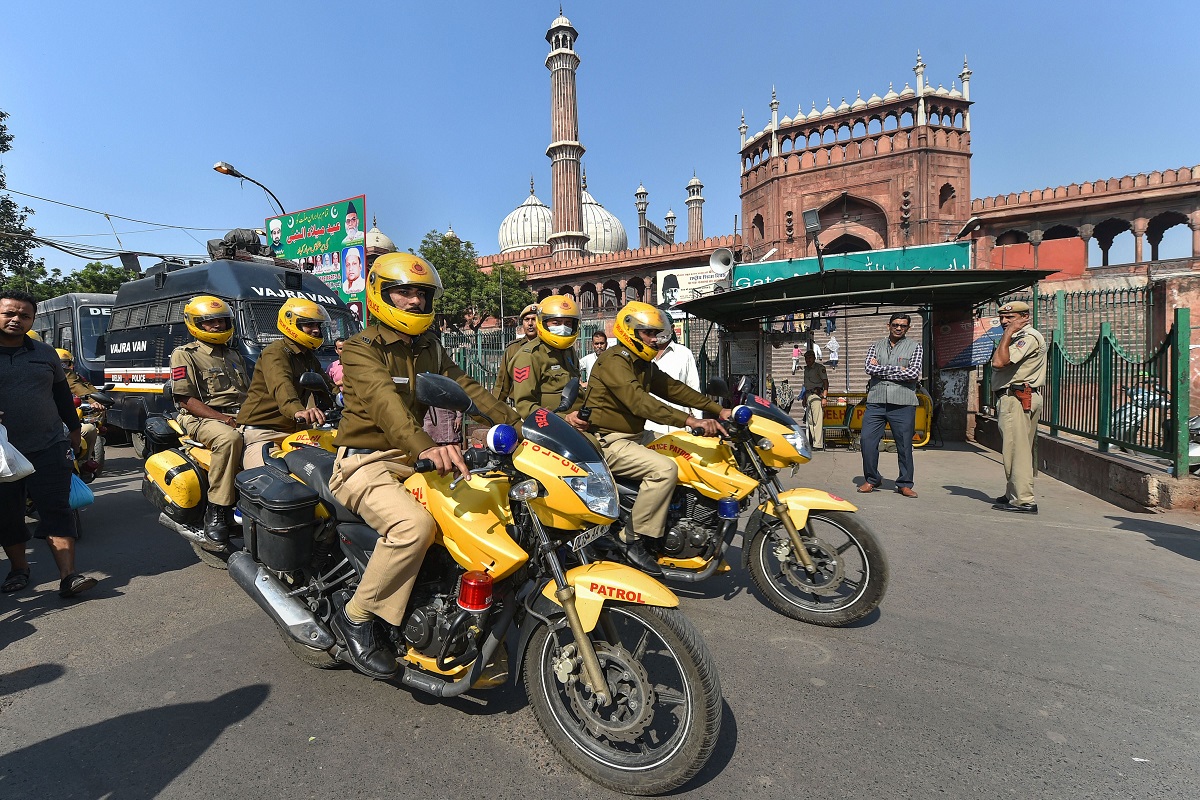
What were the precautionary measures taken before Ayodhya verdict?

Since the announcement of the verdict on the controversial Ayodhya land case, there has been no untoward incident reported from any part of the country. The credit for maintaining law and order goes to the law enforcement machinery, which has been working overtime to maintain peace, ahead of the judgment.
Various precautionary measures were taken in different states ahead of the sensitive Ayodhya land dispute case. Officials said that Union Home Minister Amit Shah reviewed the security situation in the country as the Supreme Court began delivering its judgment on the Ram Janmabhoomi-Babri Masjid title suit.
The Uttar Pradesh state government had identified 31 districts as sensitive, and sought to keep a close watch on these places. A senior official said that the state government has provided 4,000 central paramilitary personnel for deployment in Uttar Pradesh.
Temporary jails have been set up and internet services have been cut off in some parts of the state to keep a check on trouble makers who might spread rumours on social media. “Special vigil is being maintained on more than 670 people on social media<‘ the official added.
Also read: Supreme Court allows construction of Ram mandir, orders alternate land for mosque
An emergency Operations Centre has been set up at Lucknow to keep an eye on reports from media, social media and other sources on Ayodhya verdict. The centre has been set up at “112 headquarters”, named after the emergency contact telephone number.
Section 144, which prohibits the assembly of more than four people in a public area, was imposed in Uttar Pradesh, Jammu and Kashmir, and Mumbai.
All educational institutions remained shut on Saturday in Uttar Pradesh, Jammu and Kashmir, Karnataka and Rajasthan.
Security was ramped up across the country with additional forces being deployed in various cities. At least 40,000 police personnel have been deployed in Mumbai, according to officials. Additional security forces were stationed in some parts of Punjab and Haryana, with top officials reviewing the law and order situation in the two states.
Security had also been beefed up around the Jama Masjid area and parts of Old Delhi, police said. “Delhi Police will initiate strict legal action against mischief mongers or those found indulging in any activity which may adversely affect the peace and public order.”
Also read: How the legal battle to acquire 2.77-acre Ayodhya land panned out over the years
“Activities on social media platforms will be under observation and Delhi Police advises that such platforms should be used with discretion, and users should restrain from spreading any disharmony, hatred or enmity,” police added in the advisory.
In Tamil Nadu, vital installations in public places including airports, railway stations and other places where people congregate in good numbers have been enforced and these places were brought under intense scrutiny.
A senior official said that the West Bengal government had put all the police stations on high alert in view of the Supreme Court’s verdict in Ayodhya case on Saturday. The official added that police personnel had been directed to be very cautious as the day coincided with Milad-un-Nabi to observe the birthday of prophet Mohammad.
Police forces were positioned outside mosques in West Bengal as a precaution.
Himachal Pradesh police issued similar instructions and said that strict penal action will be taken against those who indulge in circulation of fake news, morphed pictures, doctored videos or any inflammatory material.


